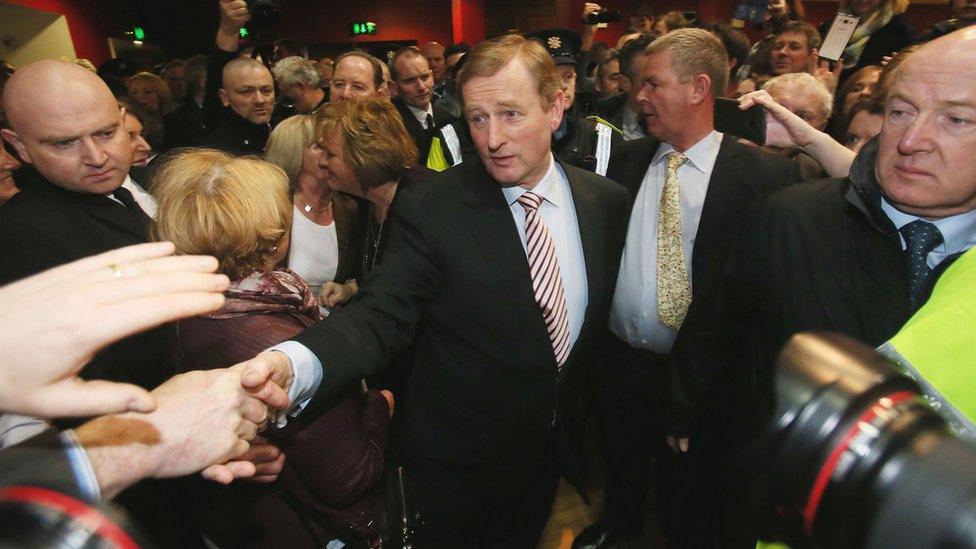Irish election: Sinn Féin eyes opposition but not government after surge
- Published
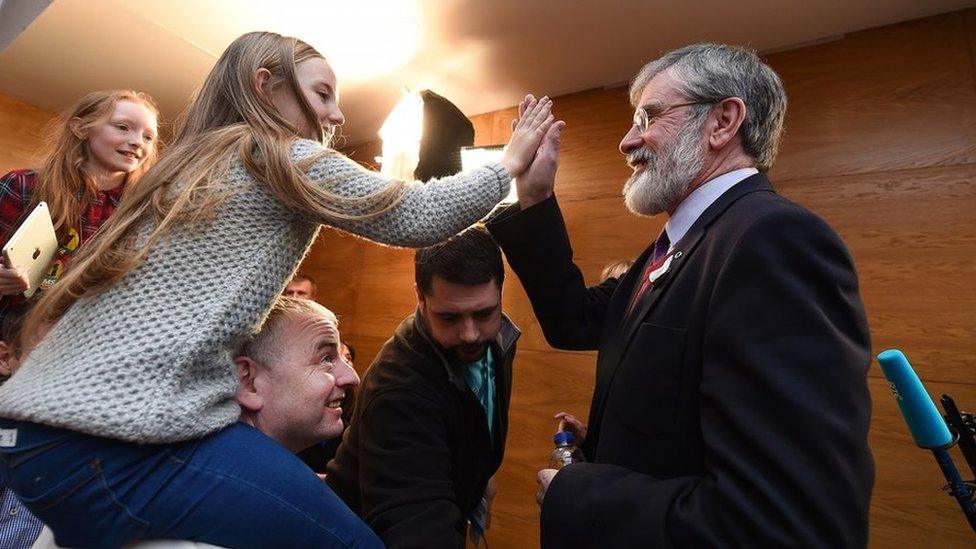
Gerry Adams meets constituents at the election count in County Louth
When Sinn Fein held its last Ard Fheis (party conference) in Londonderry in March 2015, its president, Gerry Adams, declared that his party would "not prop up either a Fine Gael or a Fianna Fáil government".
Instead, he insisted "Sinn Féin wants to lead the next government".
You could have put that aspiration down to party conference bravado, were it not for a series of opinion polls last year that suggested Sinn Féin was vying with Enda Kenny's Fine Gael as the Republic of Ireland's most popular party.
Now the results are in, Sinn Féin is still insisting it will not back Fine Gael or Fianna Fáil, but its talk of being in government on both sides of the Irish border has been put on hold.
Instead, it appears poised to play an influential role in opposition.
Suspicious
Some commentators are blaming Gerry Adams, suggesting Sinn Féin could have done better if it had entrusted its leadership to younger, southern stars such as Mary-Lou McDonald or Pearse Doherty.
During the election TV debates, Gerry Adams appeared to be grasping for details, a politician better at providing broad vision rather than economic acumen.
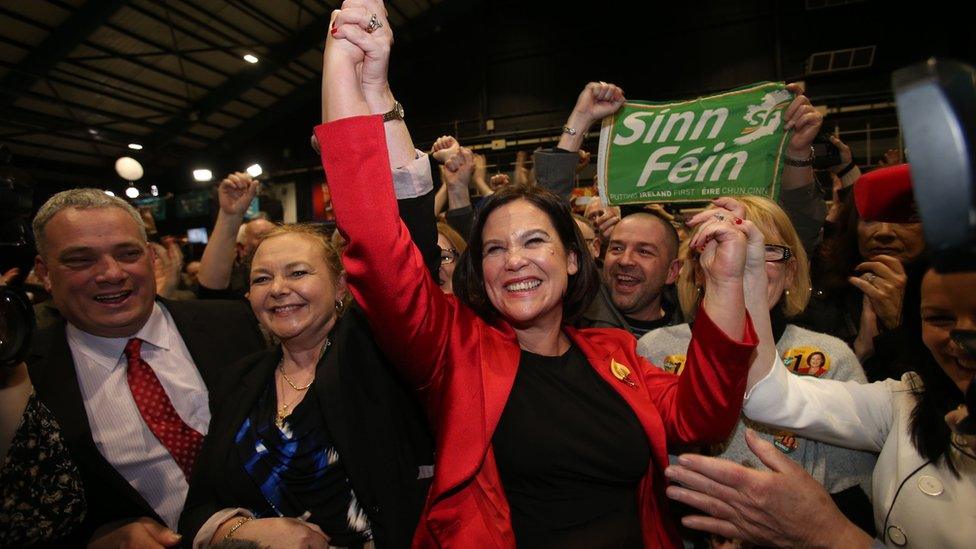
Some commentators have suggested that Mr Adams would have been handing the leadership to an up-and-comer such as Mary-Lou McDonald
Then there was his defence of alleged IRA chief Thomas 'Slab' Murphy, convicted of tax evasion, as a "good republican".
It's something that probably didn't do much to help Sinn Féin candidates attract transfers from those still suspicious of the party's historic links.
However, Sinn Féin activists point out that the party has just increased its vote by four percentage points and will return with a greatly strengthened Dáil (Irish parliament) team.
Its level of support may not have matched some opinion polls, but it's in line with the party's showing in the Irish local elections in 2014.
Moreover, reporters who followed Gerry Adams on the campaign trail testify that if he wasn't at his best in the TV studios, he retained his celebrity value on the streets.
With a degree of justification, Adams' supporters say no one asks similar questions about other leaders who have presided over steady increases in their party's vote.
They put it down to wishful thinking by Sinn Féin's critics in the media and political world.
Opposition leader
So, you can make the argument that Gerry Adams remains either an asset or a liability with equal vigour.
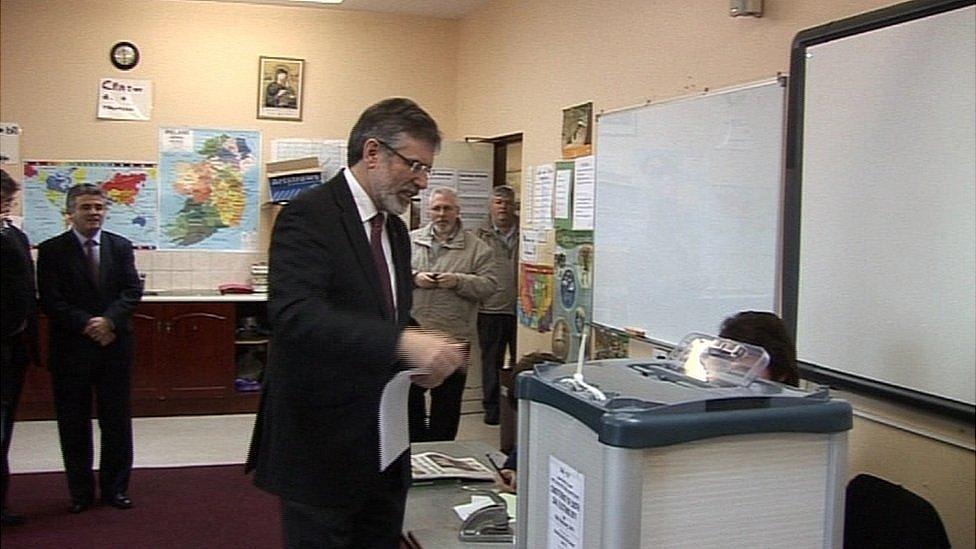
With Gerry Adams now 67, he may consider the time is right to pass on Sinn Féin's leadership
What is undoubtedly the case is that Sinn Féin has carved out a role for itself on the left of Irish politics, occupying territory lost by the likes of the Irish Labour Party.
Employing the same tactics it uses in Northern Ireland, with full-time activists engaging in assiduous constituency work, the party will dig in and not relinquish its current support easily.
Moreover, should Fine Gael and Fianna Fáil eventually reach some kind of deal, the waves could part for Gerry Adams as opposition leader.
Back in January, Sinn Féin's Martin McGuinness told me he had the energy of a 20-year-old and was not considering stepping down as Northern Ireland's deputy first minister.
However, he also acknowledged that Sinn Féin had been looking seriously at what he referred to as "the whole issue of transition".
Once he has crossed this year's centenary of the Easter Rising off his bucket list, it's not inconceivable that, at the age of 67, Gerry Adams could decide the time is right to pass the baton on to a new party president from Dublin or Donegal.
But, after more than 30 years in charge of Sinn Féin, only Gerry Adams himself will decide when that time has come.
- Published28 February 2016
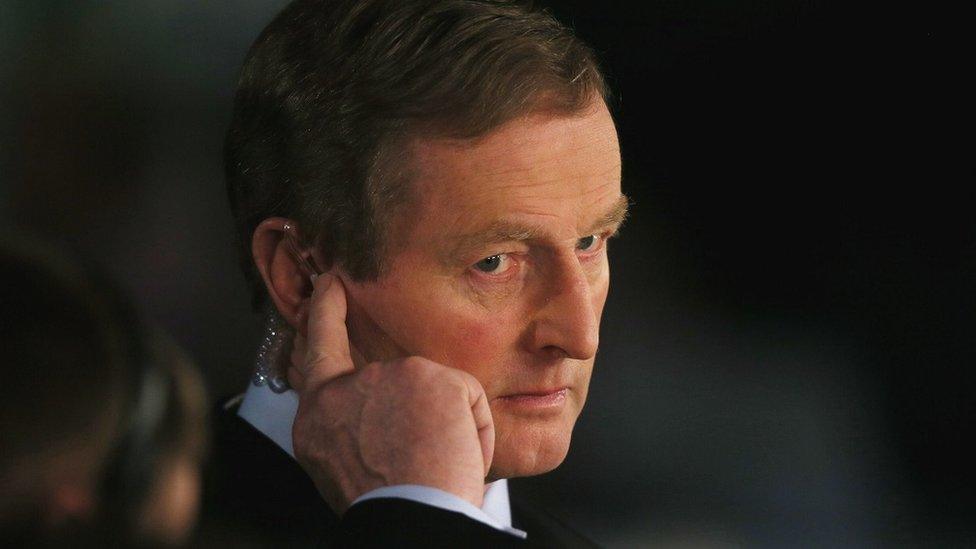
- Published28 February 2016
